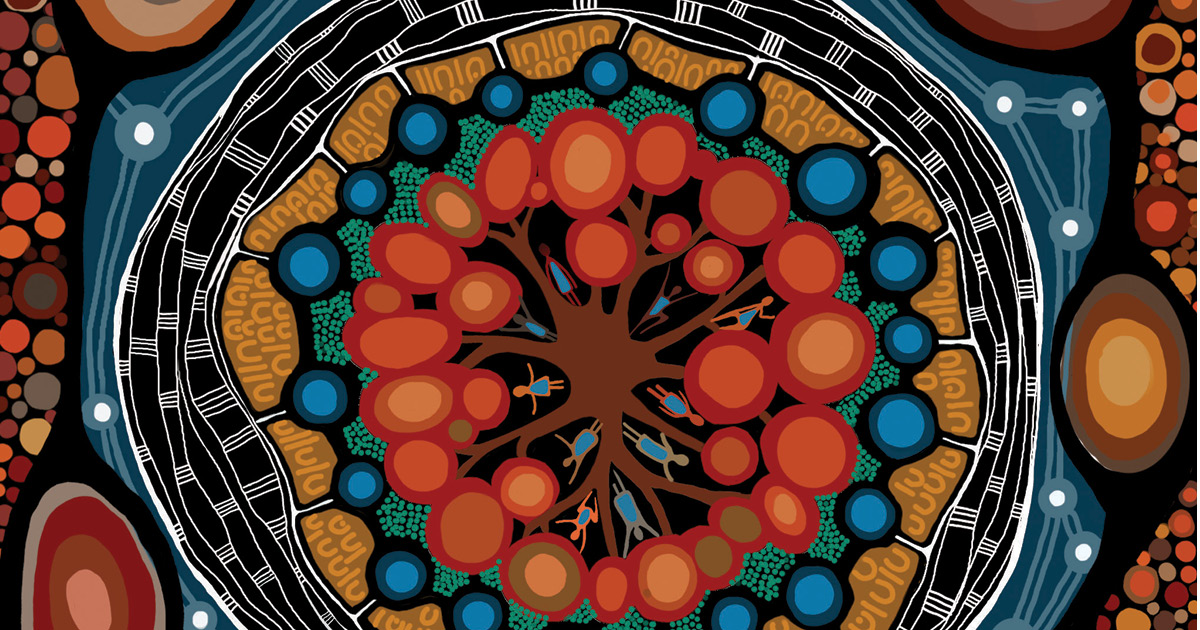Life imitates art in a new project that seeks to entrench cultural safety for young Aboriginal and Torres Strait Islander people into WA’s mental health system.
When the Embrace @ The Kids childhood trauma research group began the Cultural Safety Project, Noongar artist Valerie Ah Chee was commissioned to create a visual representation of what the project hopes to achieve.
That same hope is a key theme of Dabakan Kooliny (‘Go slowly’ / ‘Walk slowly’), after the artwork was unveiled to support the project’s plans for 2024.
A central layer features a sturdy and nurturing tree providing safety and connection for children sitting among its branches. These children are supported by layers of family, community, and culture, which work as safety nets as they embark on their holistic journey towards social and emotional wellbeing.
“Often programs are imposed from the outside, and they are adapted for Aboriginal people, rather than culturally derived,” Embrace Co-Director, and Palyku woman, Professor Helen Milroy said.
“When working from a cultural perspective, it is important to start with a cultural conceptual understanding first, which often comes in the form of art and story. This helps us to build a more comprehensive model to examine and build across our research which can then be delineated down into the elements that need to change within services. It also allows our research to embed elements of cultural safety right from the beginning.
Indigenous artwork in particular is all about storytelling, and Valerie’s artwork shows children as part of an ecological framework where they are connecting back with nature, they are connecting with community and there’s a harmony to their relationships. It is a story that instils hope, which is what we want this research to do.
The two-year project, funded by a Federal Government Medical Research Future Fund grant, is led by Aboriginal researchers and comprises an Aboriginal and non- Aboriginal team, who work closely with Aboriginal service providers and Aboriginal and Torres Strait Islander leaders in social and emotional wellbeing and mental health and suicide prevention.
The project aims to identify the requirements of cultural safety for Aboriginal and Torres Strait Islander young people and their families, with the expectation that its findings will transform the existing mental health system for Aboriginal and Torres Strait Islander youth and reduce the mental health burden placed on this group.

